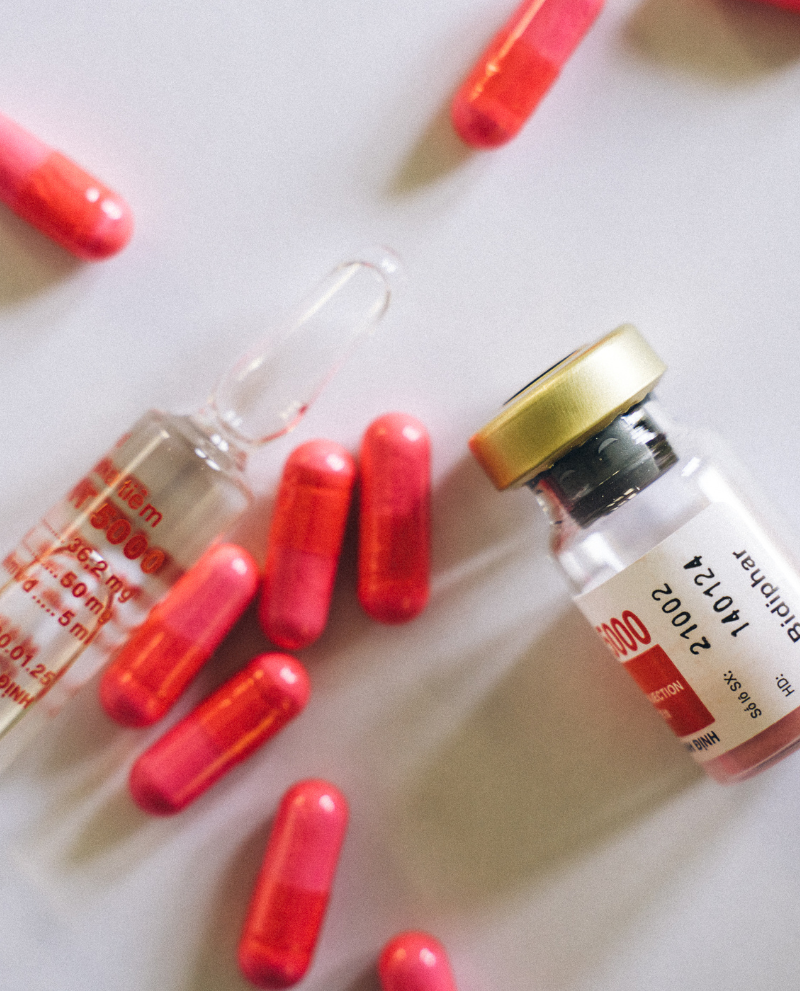Tavor addiction: an underestimated risk
Tavor, known as lorazepam, is a powerful sedative that is often used for acute anxiety or sleep problems. It can provide quick relief in the short term, but carries considerable risks if used for long periods of time. An addiction can develop after just a few weeks of regular use. This often happens gradually, as the body gets used to the effect and the dose has to be gradually increased to achieve the same effect. It is therefore important to only ever take Tavor as directed by a doctor and to keep the duration of use as short as possible in order to avoid dependence and side effects.
Tavor Personality change
Prolonged use of Tavor can lead to noticeable personality changes in some people. Those around them often notice that those affected appear more emotionally distant, show less interest in social activities or withdraw from their fellow human beings. A general apathy or loss of enjoyment of previous hobbies can also be an indication that the medication is having too strong an effect on the nervous system. In some cases, there are also sudden mood swings or increased irritability. These subtle signs should be taken seriously as they could indicate an overdose or taking Tavor for too long. Timely consultation with a doctor is important in order to adjust the dosage or consider a different treatment before the psychological effects intensify.


Experience with Tavor for panic attacks
The symptoms of Tavor dependence often appear gradually and can be varied. The most common signs include
-Dose increase: the usual dose is no longer sufficient to achieve the desired effect.
-Withdrawal symptoms: Symptoms such as restlessness, sleep disturbances, tremors or increased anxiety occur when reducing or stopping.
-Strong cravings: An intense need to take the medication, even when it is no longer necessary.
-Loss of control: Difficulty controlling the intake or giving it up completely.
-Emotional changes: Mood swings, irritability or apathy may occur.
Anyone who notices such signs should consult a doctor at an early stage in order to counteract a worsening of the addiction.
Tavor alternative without addiction: What options are there?
There are several ways to replace Tavor with alternatives that do not carry the risk of addiction. Here are some proven options:
-Herbal remedies: calming medicinal plants such as valerian, passionflower or lavender can help with mild anxiety or sleep problems.
-Relaxation techniques: Methods such as yoga, meditation or progressive muscle relaxation promote relaxation and reduce stress in a natural way.
-Medication alternatives: In some cases, medication with low addictive potential, such as certain antidepressants or anxiety-relieving preparations, can be a solution.
-Behavioral therapy: Psychotherapeutic approaches help to deal with anxiety in the long term and overcome it without resorting to medication.
With medical support, a suitable alternative can be found that is safe and effective in the long term.
Tavor dependence: when it becomes problematic
There is no general answer to the question of when Tavor can lead to dependence, as this depends on various factors. Generally speaking, there is a risk of dependence after just a few weeks of regular use. It becomes particularly risky if the dose is increased without consulting a doctor in order to achieve the same calming effect. The body quickly develops a tolerance, which means that the original dose is no longer sufficient. Taking it for longer than the recommended two to four weeks also increases the risk considerably. Anyone taking Tavor over a longer period of time should make sure to do so under medical supervision in order to avoid developing an addiction.

How often Tavor without addiction? Safe use
How often you can take Tavor without risking addiction depends heavily on the duration and dosage. In general, doctors recommend only using the medication for a short time and at the lowest possible dose - ideally no longer than a few days to a maximum of two weeks. It is important to only use the medication for acute symptoms and to review the intake regularly. The longer and more frequently Tavor is taken, the greater the risk of developing a physical and psychological dependency. To ensure that no addiction develops, Tavor should only ever be used under medical supervision and for a clearly limited period of time.



